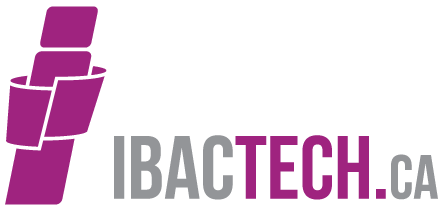Organic SEO Is Evolving—and So Should Your Strategy
In March 2025, SEO software giant Ahrefs analyzed over 300,000 keywords. They uncovered a troubling trend—when Google’s AI Overviews appear in search results, the click-through rate (CTR) for the top organic result drops by a staggering 34.5%. That’s not a slight dip. It’s a shift in how people interact with search engines.
And it’s not just Ahrefs sounding the alarm. Gartner, Inc. projects that by 2026, overall search engine volume will drop by 25% as AI chatbots and virtual agents increasingly answer user questions directly. According to Alan Antin, VP Analyst at Gartner, generative AI is fast becoming a “substitute answer engine,” replacing the kinds of queries that once drove users to traditional search.
For Canadian insurance brokers—especially those who rely on search for awareness, traffic, and lead gen—this presents a big challenge. But also an opportunity to rethink how we show up online.
The Rise of AI Overviews: What Are They?
AI Overviews are Google’s AI-generated summaries that now appear above organic listings in many search engine results pages (SERPs). Designed to offer quick answers, these summaries often fulfill a user’s need before they even consider clicking through.
This contributes to what SparkToro calls the “zero-click search” phenomenon. In fact, over 57% of mobile searches and nearly 29% of desktop searches end without a single click. These numbers are only expected to climb as AI-powered results expand.
For the insurance space, that’s especially significant. We operate in a business built on trust, clarity, and personal connection—none of which can be fully captured in a single AI-generated snippet.
What This Means for Insurance Brokers in Canada
1. AI Overviews vs. Local Packs: What Insurance Brokers Need to Know
While the local pack—that familiar boxed section near the top of Google search results showing a map and a list of three local businesses—has traditionally been the gold standard for local visibility, it’s now being overshadowed by AI Overviews.
These new summaries often show up instead, especially for search queries that mix local context with informational intent. For instance, if someone searches, “Should I increase my auto insurance deductible in St. John’s?” they’re now more likely to see an AI-generated answer at the top of the page rather than the usual map and business listings.
In fact, Whitespark found that AI Overviews appear in 97% of hybrid-intent searches and 92% of informational ones. For brokers, this means the path to visibility isn’t just about optimizing your Google Business Profile anymore. It’s about being seen as a trustworthy, expert source of advice that the AI will cite in its summaries.
2. Organic Traffic Will Decline
Even if you’re sitting at position one in the SERP, don’t be surprised if your traffic numbers start to dip. AI Overviews command attention and steal clicks by giving users exactly what they need upfront.
3. ROI Expectations from SEO Will Shift
You might still produce high-quality content and dominate your niche, but the ROI may not be as direct as it used to be. Leadership teams and marketing leads need to look beyond clicks and start measuring impact differently.
4. Owned Channels Will Become the Backbone
With search losing ground to GenAI tools, your safest bet is to double down on platforms you control—email lists, podcasts, and webinars. These aren’t just add-ons. They’re vital safety nets in a shifting search ecosystem.
5. Redefine What Visibility Means
Being at the top of a Google search results page no longer guarantees results. The new visibility metric is whether your content is trusted enough to be quoted in AI Overviews—or whether your brand is becoming part of the conversation off-SERP in the newsletters, posts, and tools people actually use.
6. Thought Leadership Will Win in the Long Run
As quick answers become the norm, in-depth insights become more valuable. That’s where Canadian brokers can shine. Share industry expertise. Offer useful analysis. Help people understand what coverage they really need and why. This isn’t just good marketing—it’s future-proofing.
How Brokers Can Stay Ahead
This shift doesn’t mean SEO is dead. It means the rules are changing. Here’s how to adapt:
• Structure content for AI: Use clear, question-driven headings and strong, trustworthy sources. Make it easier for AI to quote you.
• Get hyper-local and hyper-relevant: Focus on specific insurance needs in your community or region. Google’s AI tends to pull from precise, targeted content.
• Invest in authority signals: Online reviews, media mentions, and even expert quotes all help signal trust to both users and algorithms.
• Expand your metrics: Track email list growth, brand mentions, on-page conversions and community engagement—because raw traffic won’t tell the whole story anymore.
• Don’t Bet the House on AI Overviews – As powerful as AI Overviews have become, they’re still experimental and prone to error. Their presence can seriously cut your click-through rates, but they can also surface inaccurate or hallucinated content. That’s why brokers should take a balanced approach. Yes, work toward AI Overview inclusion, but don’t abandon your foundational marketing.
Final Thoughts
We’re not just seeing another Google tweak. We’re witnessing a foundational change in how people discover and interact with information online. Between the rise of AI Overviews and Gartner’s prediction that traditional search volume will drop by 25% by 2026, it’s clear that brokers who depend heavily on Google’s organic traffic need to start adapting now.
That doesn’t mean SEO is dead. It means the strategy behind it needs to evolve.
In the insurance world—where clarity, transparency, and trust are everything—this is an opportunity. Clients aren’t just looking for fast answers. They’re looking for reliable ones. Now more than ever, brokers should focus on creating content that is helpful and clearly shows your expertise and experience.
That means doubling down on the kind of content that truly serves people: explainers, real-world examples, transparent breakdowns of coverage, and answers to the questions clients are too nervous to ask. As Gartner’s Alan Antin puts it, companies need to produce unique content that reflects trust, authority, and a deep understanding of what their audience needs. For brokers, that’s not just a tactic. That’s our entire business model.
Build for trust. Write for real people. And make sure your message stands strong—even if the click-through never comes.
Article written by Jamie Ross, GDBA, Marketing & Communication Specialist for Wedgwood Insurance
https://www.linkedin.com/in/djamesross/
https://wedgwoodinsurance.com/








